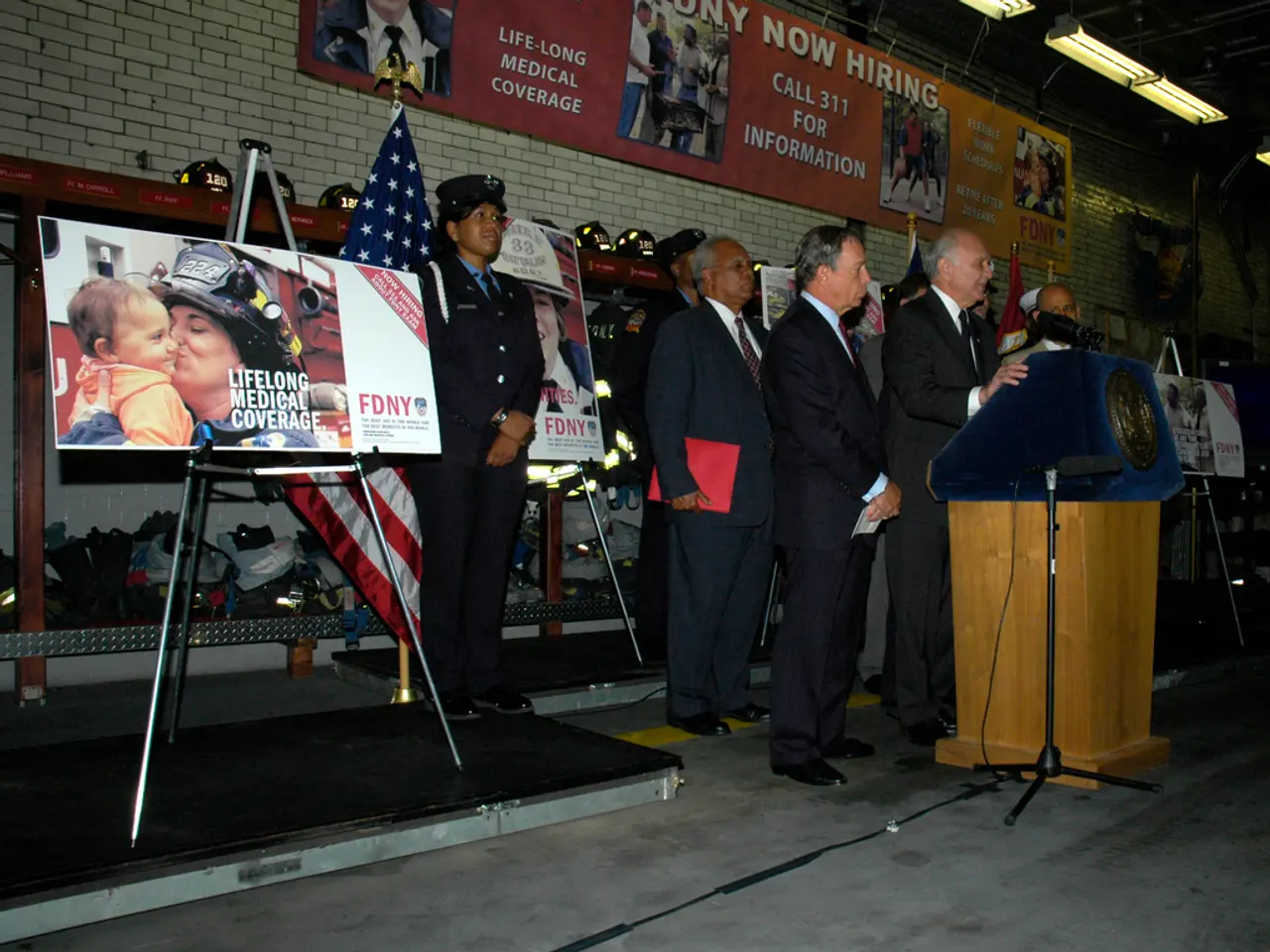Lawmakers Advocate for National Guard Head Nominee to Reverse Base Reductions
Unleashing the Winds of Change: The Senate's Battle Cry Over Air National Guard Cuts
Three senators are drawing their arrows, aiming for the heart of proposed staff cuts to Air National Guard bases in their states. The trio - Sen. Jeanne Shaheen (D-N.H.), Sen. Gary Peters (D-Mich.), and Sen. Dan Sullivan (R-Alaska) - have issued a rallying cry at a Senate Armed Services Committee hearing, insisting that these cuts could jeopardize the military's capacity to shield the homeland and meet combat requirements worldwide.
These senators argue that the Air National Guard's proposal to rebalance the number of full-time workers and dual-status technicians at installations across the nation would cripple the military's ability to secure the homeland and tackle combat obligations globally. They question the proposal's short-sightedness and lack of input from other military branches and U.S. commanders on each continent. The senators' vocal opposition secured a promise from Air Force Lt. Gen. Steven S. Nordhaus, the nominee to lead the National Guard Bureau, to slow down the implementation of these changes and consider alternative workforce management options.
Communication, transparency, and understanding the various perspectives involved are, according to Nordhaus, the keys to tackling this issue. "We need to make sure that we get out to all the stakeholders and understand points of view from each side," he said, emphasizing the importance of open dialogue and cooperation to craft an effective solution.
Recent reports suggest that the imposed changes are part of a broader plan to balance high-paying positions among the National Guard's 54 state and territorial units by October 1. However, a spokesperson at National Guard headquarters has yet to clarify the total number of endangered jobs or explain the reasons behind these cuts.
Specific examples of proposed cuts include Pease Air National Guard Base in New Hampshire, which is slated to lose 12 full-time positions, while another 22 jobs would be downgraded from full-time Active Guard Reserve roles to technician positions. The senators express concern that these cuts would deplete the base of critical expertise and diminish its capacity to uphold its global refueling obligations.
In Michigan, the Guard is considering axing up to 117 full-time civilian employees, including 15 contracting personnel, at Selfridge Air National Guard Base. The base is home to a variety of military equipment and agencies, functioning much like an Active-Duty base. Sen. Gary Peters requests an independent manpower study to compare the base's needs with those of Active-Duty installations before implementing the staff cuts.
In Alaska, proposed changes have been delayed, and elected leaders argue that the proposed downgrade of about 80 employees to technician roles would negatively affect the state's capacity for missile detection and remote search-and-rescue missions. The changes have driven some veterans to leave the military, according to Sen. Dan Sullivan.
The National Guard Bureau is currently grappling with staffing vacancies, as the bureau's top job has been empty since late August, with other key positions still unfilled. Nordhaus stands poised to address these issues if confirmed as the bureau's new leader. His upcoming confirmation hearing will likely reveal more about his approach and potential solutions to the pressing challenges faced by the Air National Guard.
- The senators' opposition in the Senate Armed Services Committee hearing represents a significant pushback against the military's policy-and-legislation regarding Air National Guard cuts, which they argue could impact war-and-conflicts capabilities worldwide.
- The proposed changes in staffing within the Air National Guard, aiming to balance high-paying positions among its units, have sparked general-news discussions given their potential implications for space and defense, especially in light of the current lack of clarity on the total number of endangered jobs and reasons behind these cuts.
- The Air Force's Space Force is closely watching the Senate's battle cry over Air National Guard cuts, as the military's ability to secure space could be affected by any weakening of the homeland's defense.
- The military's rebalance of personnel at Air National Guard installations across the nation, questionably lacking input from other military branches and U.S. commanders, has been criticized by the senators as short-sighted and potentially detrimental to the military's aircraft capabilities in space and combat operations.
- Politics surrounding the proposed Air National Guard cuts have become increasingly complex, with the senators advocating for communication, transparency, and understanding various perspectives to arrive at alternatives that safeguard the military's capacity in space, defense, and the homeland, particularly in the Air Force and Space Force.






